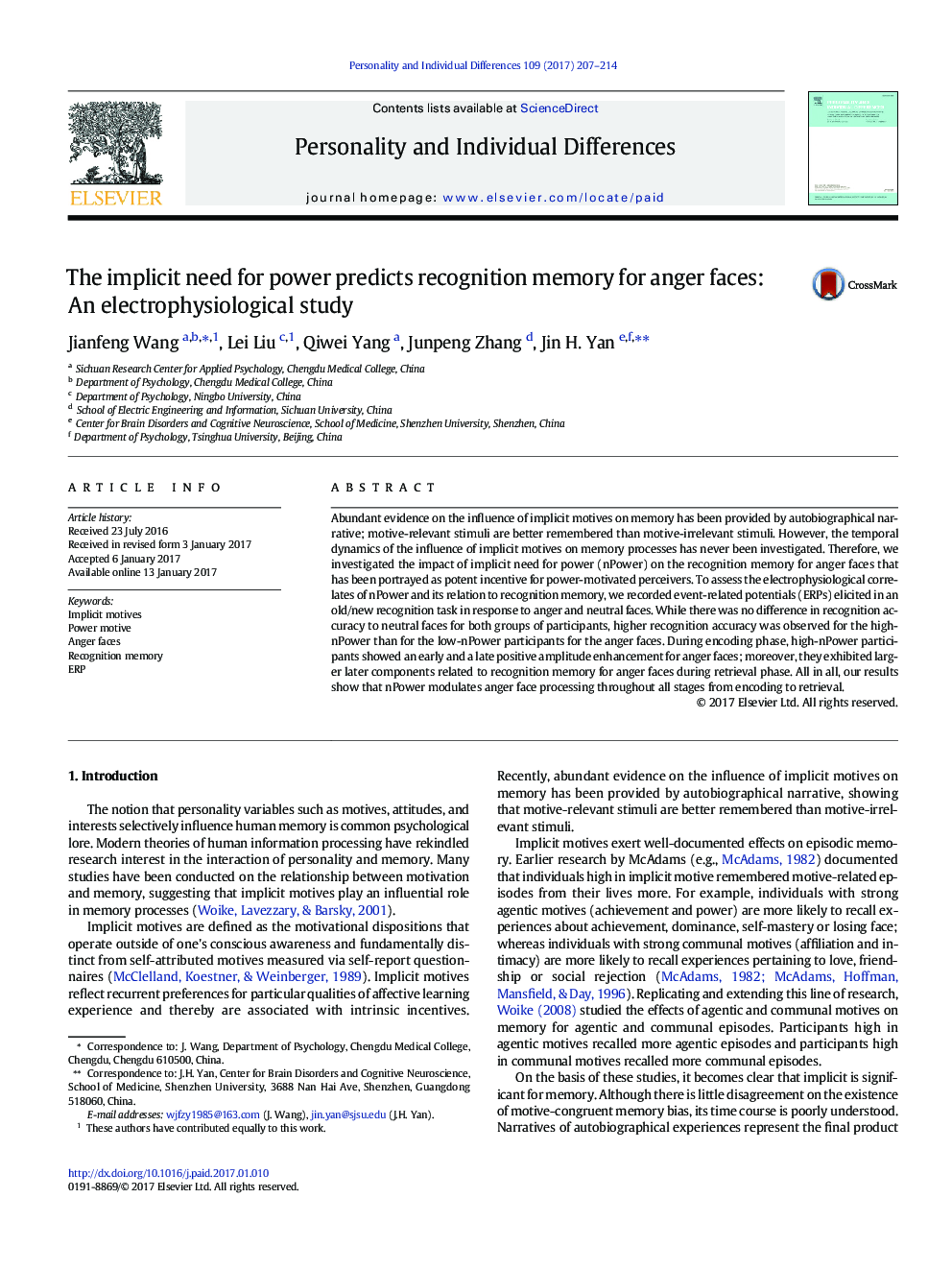| Article ID | Journal | Published Year | Pages | File Type |
|---|---|---|---|---|
| 5036306 | Personality and Individual Differences | 2017 | 8 Pages |
â¢We examine the temporal dynamics of the influence of nPower on memory processes.â¢Higher recognition accuracy for anger faces was found for the high-nPower subjects.â¢nPower modifies face processing throughout all stages from encoding to retrieval.
Abundant evidence on the influence of implicit motives on memory has been provided by autobiographical narrative; motive-relevant stimuli are better remembered than motive-irrelevant stimuli. However, the temporal dynamics of the influence of implicit motives on memory processes has never been investigated. Therefore, we investigated the impact of implicit need for power (nPower) on the recognition memory for anger faces that has been portrayed as potent incentive for power-motivated perceivers. To assess the electrophysiological correlates of nPower and its relation to recognition memory, we recorded event-related potentials (ERPs) elicited in an old/new recognition task in response to anger and neutral faces. While there was no difference in recognition accuracy to neutral faces for both groups of participants, higher recognition accuracy was observed for the high-nPower than for the low-nPower participants for the anger faces. During encoding phase, high-nPower participants showed an early and a late positive amplitude enhancement for anger faces; moreover, they exhibited larger later components related to recognition memory for anger faces during retrieval phase. All in all, our results show that nPower modulates anger face processing throughout all stages from encoding to retrieval.
